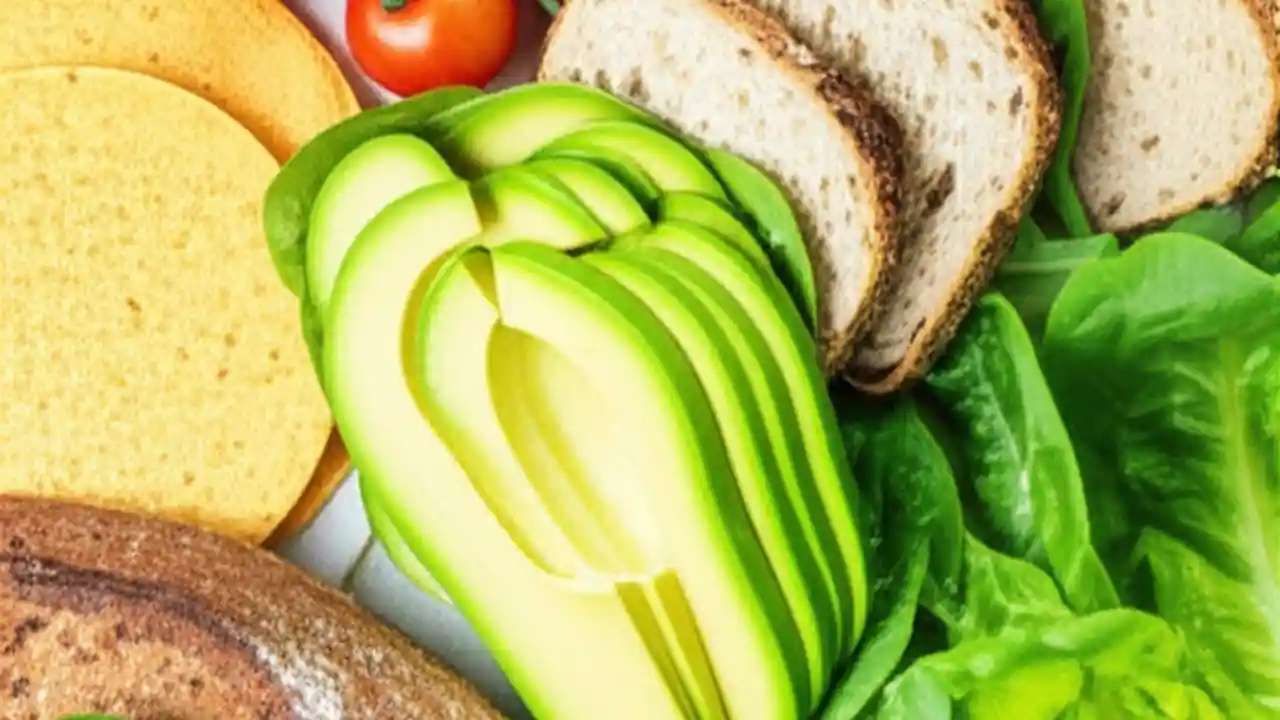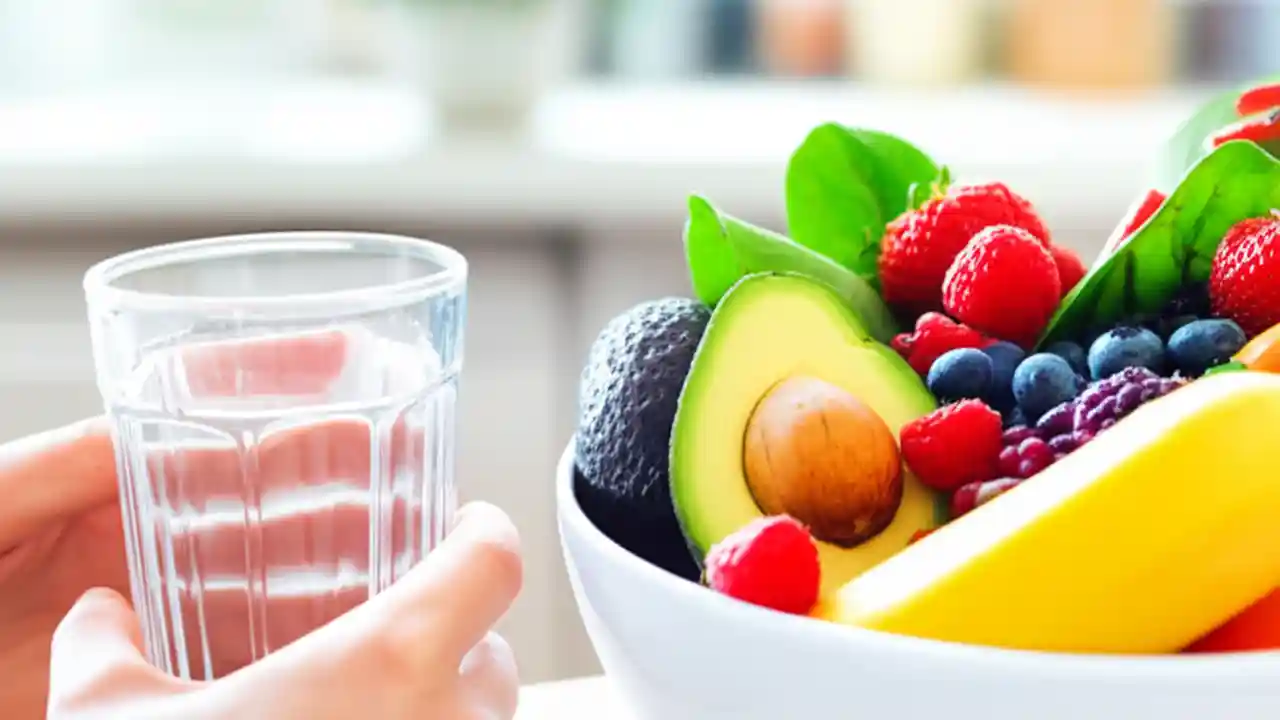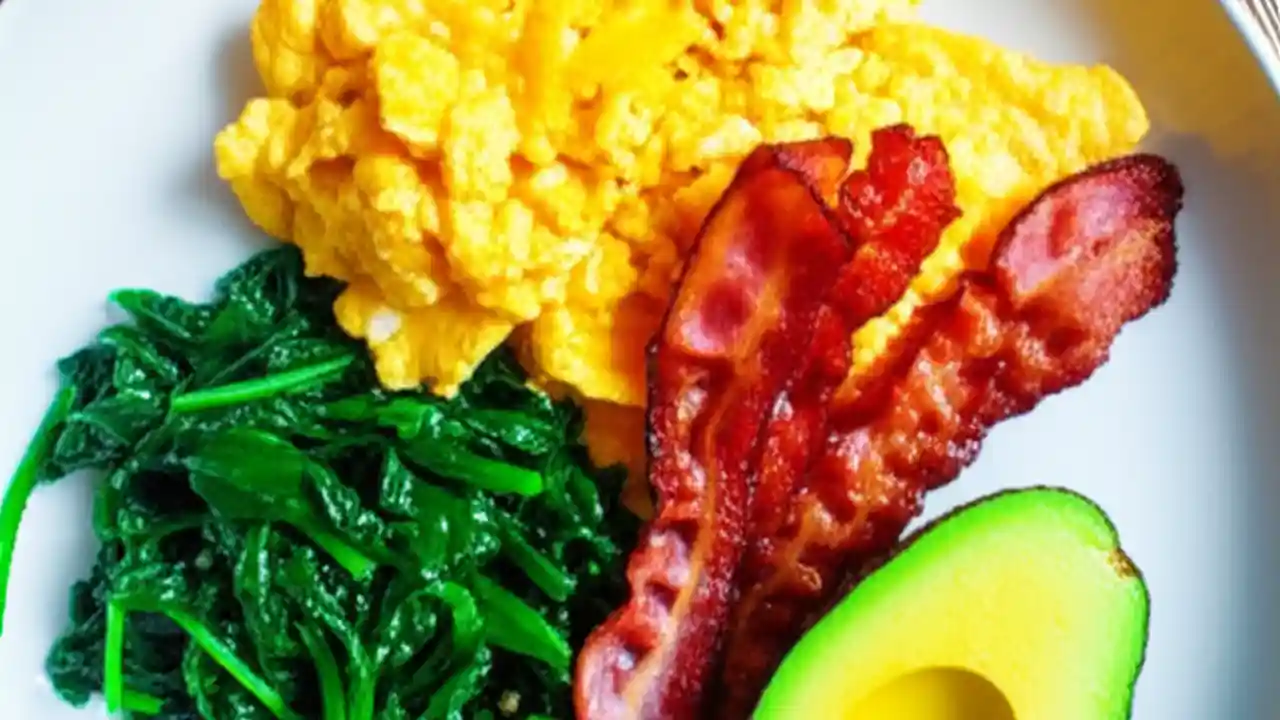Yes, eating breakfast can be a powerful and effective strategy for weight management. For many people, a balanced morning meal helps regulate appetite, stabilize blood sugar levels, and prevent overeating later in the day, making it easier to maintain a healthy weight. It’s less about the simple act of eating and more about *what* and *how* you eat.
This isn’t just about the old “most important meal of the day” saying. We’re going to dive into the real science behind it. We’ll explore how a strategic breakfast can kickstart your metabolism and why skipping breakfast might actually work against your weight goals. We’ll also break down the best foods to put on your plate and the common pitfalls to avoid.
Think of this as your complete guide. We’ll cover everything from the physiological effects on your body to practical, quick breakfast ideas that fit into a busy lifestyle. By the end, you’ll understand exactly how to make breakfast work for you on your weight management journey.
Table of Contents
The Science: How Breakfast Impacts Your Weight
Let’s get into the “why” behind it all. Understanding what’s happening inside your body when you eat (or skip) breakfast is the key to making it a successful part of your strategy. It’s a fascinating interplay of hormones, metabolism, and psychology.
How exactly does eating breakfast help with weight management?
Eating a balanced breakfast helps manage weight in three primary ways: appetite control, metabolic boost, and blood sugar stabilization. Think of it as setting the tone for your entire day.
- Appetite Control: A breakfast rich in protein and fiber is incredibly satiating. It makes you feel full and satisfied, reducing the urge to snack on high-calorie foods mid-morning. This prevents the “hanger” that often leads to poor food choices later on.
- Metabolic Kickstart: Eating triggers thermogenesis, the process where your body burns calories to digest and process food. While the effect is modest, starting this process in the morning helps get your metabolic engine running. More importantly, it signals to your body that fuel is available, preventing it from entering a conservation mode.
- Blood Sugar Stability: A good breakfast prevents a sharp drop in blood sugar after an overnight fast. This avoids the release of stress hormones like cortisol and prevents the intense cravings for sugar and refined carbs that come with low blood sugar. Stable energy means better focus and fewer impulsive food decisions.
What happens to your body and weight when you skip breakfast?
For some, skipping breakfast is a part of an intermittent fasting plan that works. However, for many others, it can backfire. When you skip your morning meal, your body can interpret this prolonged fast as a period of scarcity.
This can increase cortisol levels, a stress hormone linked to fat storage, especially around the abdomen. You’re also far more likely to be ravenously hungry by lunchtime, leading you to overeat or choose less healthy, high-calorie options to quickly satisfy that intense hunger. Over time, this pattern can easily lead to weight gain, not loss.
Does the timing of breakfast really matter?
Yes, timing can play a significant role. Your body runs on an internal 24-hour clock known as the circadian rhythm, which influences your metabolism. Your metabolism is generally more efficient earlier in the day.
Eating within a couple of hours of waking up aligns with this natural rhythm. It replenishes your glucose stores after a night of fasting and provides the energy your brain and muscles need to function optimally. Delaying breakfast for too long can throw this rhythm off and may diminish some of the metabolic benefits of the meal.
Building the Perfect Weight Management Breakfast
Now that we know the “why,” let’s focus on the “what.” Not all breakfasts are created equal. A sugary donut and a black coffee won’t give you the same benefits as a balanced, nutrient-dense meal. The composition of your breakfast is everything.
What are the best foods to eat for breakfast for weight loss?
The best breakfast for weight management is built on a foundation of protein, fiber, and healthy fats. This combination is the ultimate formula for satiety and sustained energy.
- Protein: Eggs, Greek yogurt, cottage cheese, lean sausage, or a quality protein powder in a smoothie. Protein takes longer to digest and has a powerful effect on appetite-reducing hormones.
- Fiber: Oats, chia seeds, flaxseeds, berries, apples, and whole-grain bread. Fiber adds bulk to your meal and slows down digestion, keeping you full for hours.
- Healthy Fats: Avocado, nuts, and seeds. Healthy fats contribute to satiety and are crucial for absorbing certain vitamins.
Combining these elements creates a meal that keeps you full, energized, and mentally sharp all morning.
Is a high-protein breakfast the secret to weight management?
It’s not a secret, but it is a cornerstone. Numerous studies show that a high-protein breakfast is superior for weight management compared to a high-carb one. A breakfast with at least 20-30 grams of protein has been shown to significantly reduce cravings and calorie intake throughout the rest of the day.
For example, one study found that people who ate an egg-based breakfast consumed fewer calories at lunch and for the entire day compared to those who ate a bagel-based breakfast with the same number of calories. Protein simply has more staying power.
Are carbs for breakfast bad for you?
Not at all! The key is choosing the *right* kind of carbs. The problem isn’t carbs themselves, but refined, simple carbohydrates that are stripped of their fiber.
| Good Carbs (Complex) | Carbs to Limit (Simple) |
|---|---|
| Oatmeal, quinoa, whole-grain toast, sweet potatoes, fruits like berries and apples. | White bread, sugary cereals, pastries, muffins, pancakes with syrup, fruit juice. |
| These are digested slowly, providing a steady release of energy and keeping you full. | These cause a rapid spike and crash in blood sugar, leading to energy slumps and cravings. |
Pairing a complex carbohydrate with a strong source of protein and a healthy fat creates the most balanced and effective breakfast for weight management.
How do I build a balanced breakfast plate for weight loss?
A simple way to visualize this is the “Plate Method.” It doesn’t require obsessive calorie counting but ensures you get a good mix of macronutrients.
Imagine your plate or bowl and aim for this composition:
- 1/2 of the Plate: Protein Power. This is your anchor. Fill it with eggs, Greek yogurt, or a tofu scramble.
- 1/4 of the Plate: Fiber-Rich Carbs. Add a slice of whole-grain toast, a half-cup of oatmeal, or a handful of berries.
- 1/4 of the Plate: Healthy Fats & Veggies. Add a quarter of an avocado, a sprinkle of chia seeds, or some spinach and mushrooms to your eggs.
This simple formula ensures you’re getting a nutrient-dense meal that will keep you full and focused.
Practical Tips and Common Pitfalls
Knowing what to do is one thing; actually doing it on a busy Tuesday morning is another. Let’s tackle some real-world challenges and common mistakes to ensure your breakfast habits support your goals.
What are some common breakfast mistakes to avoid?
Even with the best intentions, it’s easy to fall into traps that sabotage your weight management efforts. Here are the most common mistakes:
- Choosing Sugary Cereals: Many popular breakfast cereals, even those marketed as “healthy,” are loaded with sugar and refined grains. They lead to a quick energy spike followed by a crash. Always read the label.
- Drinking Your Calories: Fruit juices, sweetened coffee drinks, and even some smoothies can be packed with sugar and calories without providing the same feeling of fullness as solid food. Opt for whole fruit and black coffee or tea.
- Going “Fat-Free”: Fat-free products often compensate for the lack of fat by adding extra sugar or sodium. Healthy fats are your friend; they are essential for satiety.
- Eating Too Little: A tiny, 100-calorie breakfast won’t provide enough fuel or satiety. This often leads to overcompensating with snacks or a much larger lunch. Aim for a substantial meal of at least 300-400 calories.
What are some quick and healthy breakfast ideas for busy mornings?
Lack of time is the number one reason people skip breakfast. The solution is to plan ahead. Here are some ideas that take 5 minutes or less to assemble:
- Overnight Oats: Combine rolled oats, Greek yogurt or milk, chia seeds, and fruit in a jar the night before. Just grab and go in the morning.
- Breakfast Smoothie: Blend a scoop of protein powder, a handful of spinach, frozen berries, and a tablespoon of almond butter with water or unsweetened milk.
- Pre-made Egg Muffins: Bake a batch of egg muffins with veggies and cheese on Sunday. You can microwave a couple in under a minute for a high-protein breakfast all week.
- Greek Yogurt Parfait: Layer Greek yogurt with berries and a sprinkle of nuts in a cup. It’s a balanced meal that feels like a treat.
Is oatmeal or eggs a better choice for a weight loss breakfast?
This is a classic breakfast showdown! Both are excellent choices, but they serve slightly different purposes. The best one for you depends on your personal preferences and how your body responds.
| Factor | Eggs | Oatmeal |
|---|---|---|
| Primary Benefit | High-quality protein for maximum satiety. | High in soluble fiber, which is great for heart health and sustained energy. |
| Satiety Level | Very high. Tends to keep people fuller for longer due to protein content. | High. The fiber swells in your stomach, promoting fullness. |
| Best For | People who struggle with mid-morning cravings and need a very filling meal. | Those who want a warm, comforting meal and a slow, steady release of energy. |
| How to Boost | Add spinach, bell peppers, or avocado. | Stir in protein powder, chia seeds, nuts, or top with Greek yogurt. |
The verdict? You can’t go wrong with either. Try alternating between them to get a variety of nutrients and see which one keeps you feeling your best.
Are commercial breakfast bars or cereals a good option?
It’s a mixed bag. The breakfast aisle is a minefield of clever marketing. While some bars and cereals are genuinely healthy, many are just candy bars in disguise.
Here’s a quick checklist for reading labels:
- Check the Sugar: Look for options with less than 8 grams of sugar per serving. Be wary of hidden sugars like corn syrup or cane juice.
- Prioritize Protein & Fiber: Aim for at least 5 grams of fiber and 10 grams of protein. This is a good sign that it will actually keep you full.
- Scan the Ingredient List: If the first ingredient is sugar or a refined flour, put it back. Look for whole foods like oats, nuts, or seeds at the top of the list.
While convenient, whole, unprocessed foods are almost always the superior choice. A pre-made bar should be a backup option, not your daily go-to.
Conclusion
So, what’s the final word? Making breakfast a consistent part of your routine can absolutely be a game-changer for weight management. By focusing on a meal rich in protein, fiber, and healthy fats, you set yourself up for a day of better choices, stable energy, and controlled hunger. It’s not a magic pill, but a powerful, strategic tool.
Remember, the goal is to build a sustainable habit that works for *your* body and lifestyle. Start with the tips here, experiment with different healthy options, and pay attention to how you feel. You have the power to make your first meal of the day one of your best decisions. If this guide helped you, consider sharing it with someone who might find it useful!













